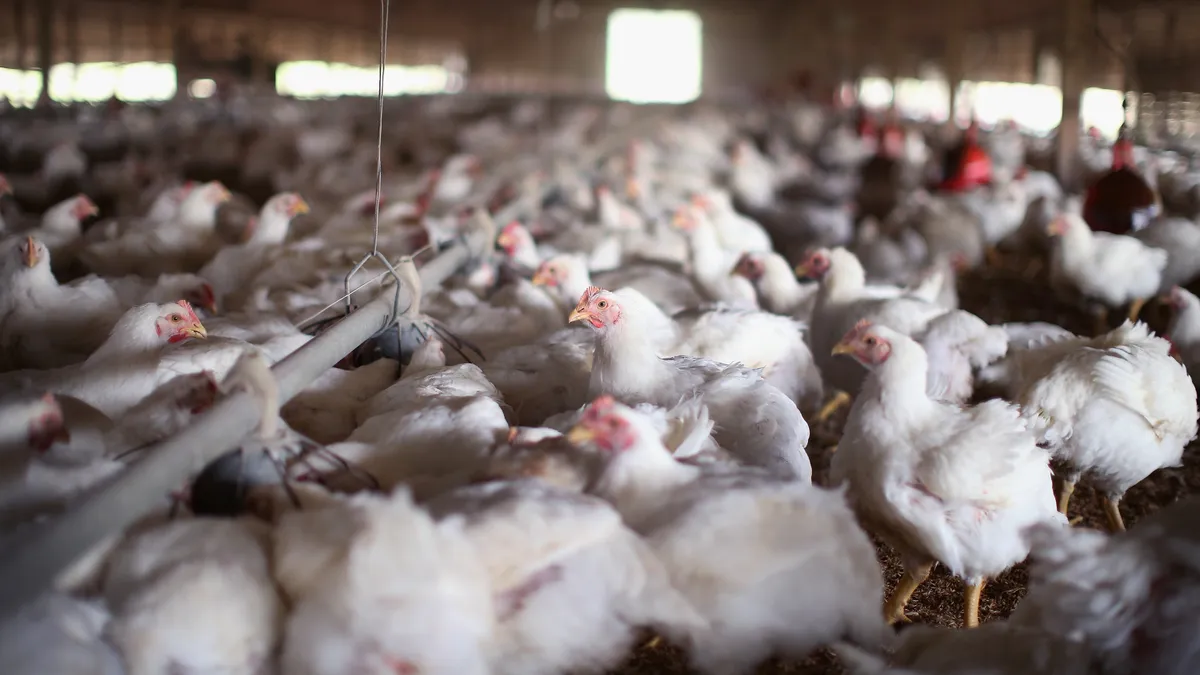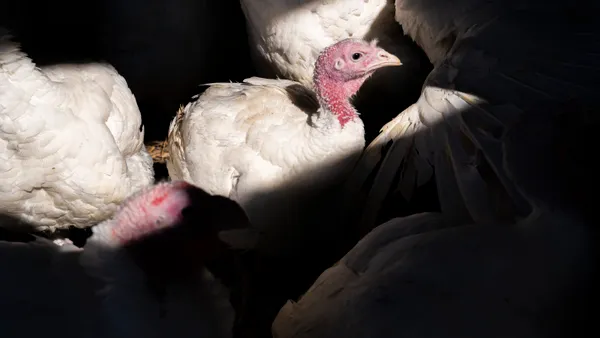Dive Brief:
-
Sanderson Farms did not participate in an industry-wide scheme to inflate chicken prices, an Illinois jury ruled Wednesday, giving the poultry processor a victory in one of the industry's largest antitrust cases.
-
Following a six-week trial, a jury in the U.S. District Court for the Northern District of Illinois rejected the plaintiffs’ claims that the nation's third-largest poultry processor engaged in a conspiracy to drive up broiler chicken prices between 2008 and 2012 using unlawful tactics such as sharing sensitive data with other producers and reducing breeder flock sizes.
-
Sanderson was renamed Wayne-Sanderson in 2021 following a $4.5 billion acquisition by Cargill and Continental Grain Co, who turned the company into a private business through a merger with Continental's subsidiary Wayne Farms. The company’s legal team said it defeated $7 billion in damages claims, which would have tripled to $21 billion if the processor lost.
Dive Insight:
The class-action antitrust claims, originally filed in 2016, allege that some of the largest U.S. chicken processing companies — who control 90% of the market — and their co-conspirators colluded to fix, raise, maintain and stabilize the price of broiler chickens as early as 2008.
The plaintiffs, which include Walmart, Sysco and other direct and indirect buyers of chicken, argue the defendants were able to do this in part by destroying breeder flocks, which lay broiler chicken eggs, and sharing sensitive price and production data through Agri Stats, a trade publication with highly detailed reports. Last month, the U.S. Department of Justice sued Agri Stats for allegedly allowing meatpackers to unlawfully share information.
While Tyson, Pilgrim's Pride and other producers decided to settle claims, others – including Sanderson – decided to take the case to trial. District Court Judge Thomas Durkin ruled in June that claims against Sanderson could proceed, while dismissing cases against Perdue and other producers.
“Today’s verdict vindicates Sanderson Farms and shows that the Plaintiffs’ case ignored fundamental truths about Sanderson Farms and the nature of the chicken industry,” Jeremy Kilburn, chief legal and compliance officer at Wayne-Sanderson Farms, said in a statement.
Sanderson's defense team focused on the company's production efforts during the time in question, beginning shortly after the 2008 housing crash.
“Sanderson was the only company to build and ramp up new production plants during an alleged supply reduction conspiracy,” said Chris Ondeck, co-chair of Proskauer’s Antitrust Group.











